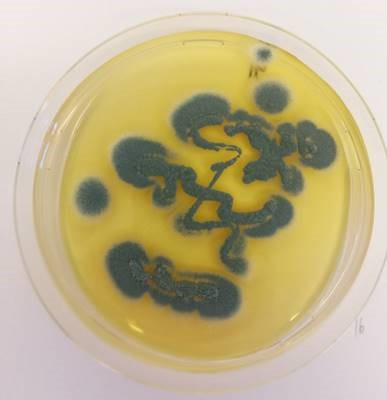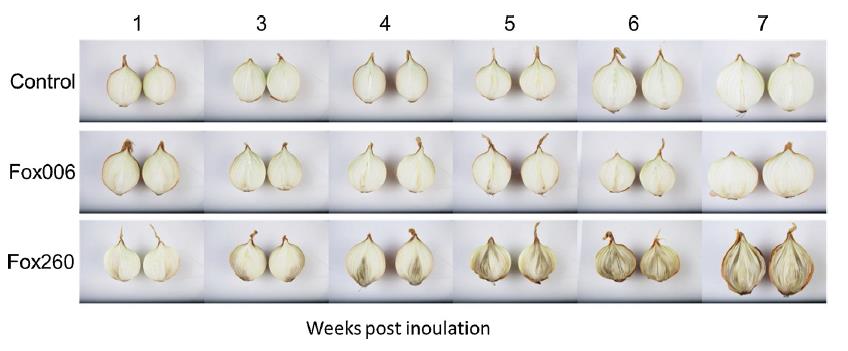
Penicillium glabrum with blue-green spores isolated from spoiled onions. The fungi produces specific volatile organic compounds, which can be used as an indicator of growth of the fungus on onions.
Much of the food we are producing never ends up at the dining table because it is lost after it leaves the agricultural field or farmyard. This is a major problem from an ethical, economical and resource point of view. It is estimated that up to 25% of food is lost, globally. Regarding vegetables and fruit, pathogenic fungi and bacteria are responsible spoiling a great part of the produce, when kept at long-term storage facilities.
These microorganisms are often carried along from the field and when they attack, both the microorganisms and the produce will often release bad-smelling volatile organic compounds (VOCs). These can be sampled from the surrounding air and analyzed, e.g. by using solid-phase micro extraction (SPME) together with gas chromatography–mass spectrometry (GC-MS).
In this way, it is possible to detect when spoilage microorganisms have started attacking stored vegetables (e.g. potatoes or onions) and. Hence, research undertaken at the Environmental microbiology and biotechnology section is focusing on exploring the potential for using VOCs from spoilage microorganisms as early-warning indicators that can be used to decrease loss of vegetables during long-term storage.

Onions inoculated with spores from two Fusarium oxysporum isolates (Fox006 and Fox260), and onions which did not receive fungal spores (Control). The Fox006 isolate had no effect on the onions in the 7 weeks after addition of the spores, while Fox260 spoiled the onions completely during this period. The Fox260 isolate produced VOCs that enabled following its growth inside the onion.